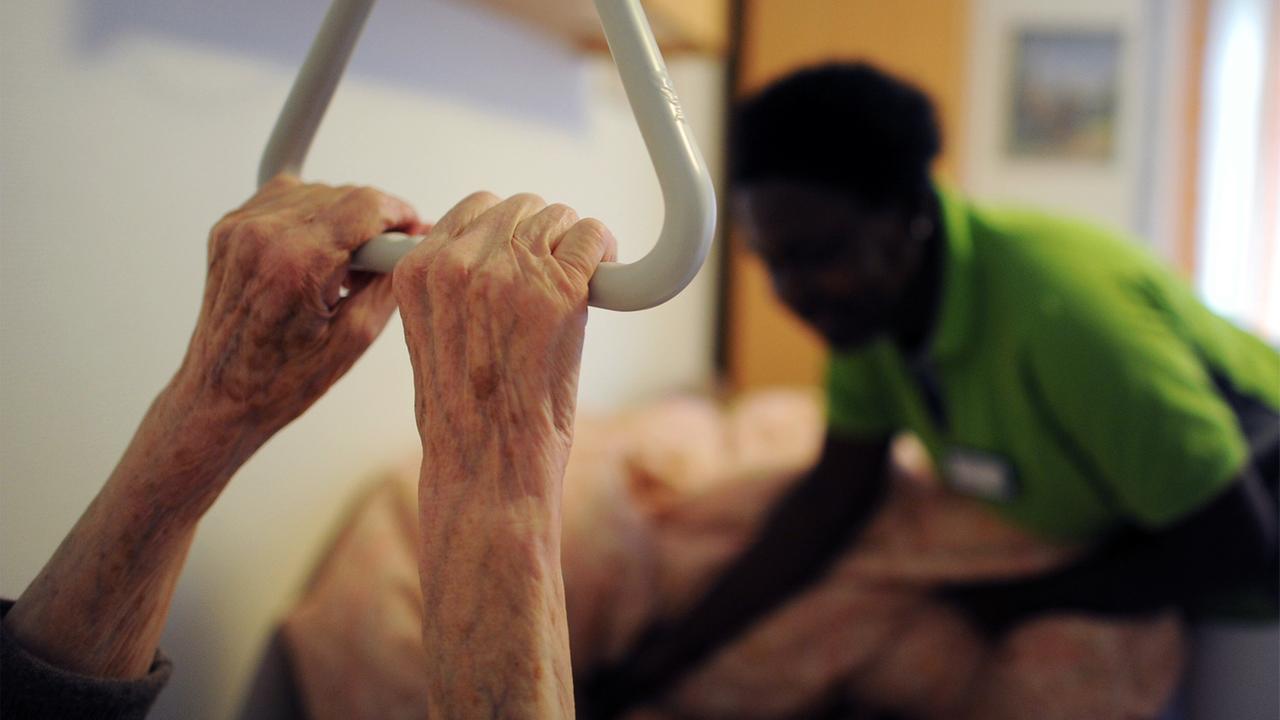background
The traffic light government is planning tax breaks for foreign skilled workers to attract them to Germany. But the real problem is something completely different: too much bureaucracy.
Hümeyra Kücük has been working in the Caritas outpatient care center in Rheinfelden near the Swiss border for over a year. Kücük is a Turkish citizen who grew up in Switzerland – she also completed her training there. Although she could earn significantly more as a nurse in Switzerland, she still enjoys working in Germany: the working hours are easier to combine with looking after her children. Because she mainly makes home visits to outpatients, she can organize her work flexibly.
“Otherwise it is unfair”
Hümeyra Kücük would probably also benefit from the planned tax relief of the traffic light coalition: Since this is her first year of work in Germany, the relief for her would currently be 30 percent. In the second year it would be 20 percent, and in the third year at least ten percent. Nevertheless, Kücük does not think much of the plans. “If I get the tax relief, my German colleagues should get it too. Otherwise it is unfair,” she says. After all, they work just as hard.
Nursing service manager Kerstin Posniak fears unrest in the team if foreign specialists receive tax breaks while German specialists do not for the same work. “I think we should look elsewhere to see where the problems lie,” she warns.
Training is not recognized
The real problem is bureaucracy – also for Hümeyra Kücük. For almost a year and a half she has been waiting for her training, which she completed in Switzerland, to be recognized in Germany. But the authorities are overwhelmed and keep putting her off. “Every time I call the responsible regional council, I am told that they are working on it. But I don't know how long it will take,” says Hümeyra Kücük.
The result: Kücük is currently working as an unskilled assistant. This means 300 euros less per month for her. Depending on how long the authorities take to respond, this difference can grow to up to 800 euros per month. This is because skilled workers get more money from Caritas the longer they work for a company. Unskilled assistants do not. Caritas could theoretically pay her more, but then the health insurance companies would not reimburse her for the additional costs.
New bureaucratic hurdles every day
Rolf Steinegger, board member at Caritas Hochrhein, experiences the bureaucratic hurdles almost every day: a Cameroonian specialist who had been recruited long ago cannot get a visa and cannot travel to Germany. An American nurse was allowed to drive a car in Germany for six months with an international driver's license, but now she suddenly has to get a German driver's license for a lot of money. In other cases, one authority does not know what the other is doing.
“You have to imagine that someone comes from abroad and says, 'I want to work in Germany,'” he says. They are lured with tax relief, but the problems only come afterwards. “They'll be in Canada or somewhere else in the world before we know it.” Foreign skilled workers are urgently needed, especially in times of a nursing shortage. In the outpatient care center in Rheinfelden, their share is already between 30 and 40 percent.
Widespread resistance to traffic light law
Tax relief is not the right solution, not only for the operators, but also for the majority of Germans: in surveys, more than half reject the traffic light coalition's plans. There is also sharp criticism from the coalition itself and from the opposition. Experts such as the economist Monika Schnitzer, head of the “Economic Experts”, believe the approach is correct, but also stress that in Germany it is mainly bureaucratic hurdles that stand in the way of better recruitment of skilled workers.
Hümeyra Kücük would probably have more net income at the end of the month even without tax relief if her Swiss professional qualifications were finally recognized. “I'm slowly getting fed up with waiting,” she says. At some point she will go back to Switzerland. And the care center and its patients would be missing a much-needed specialist.




